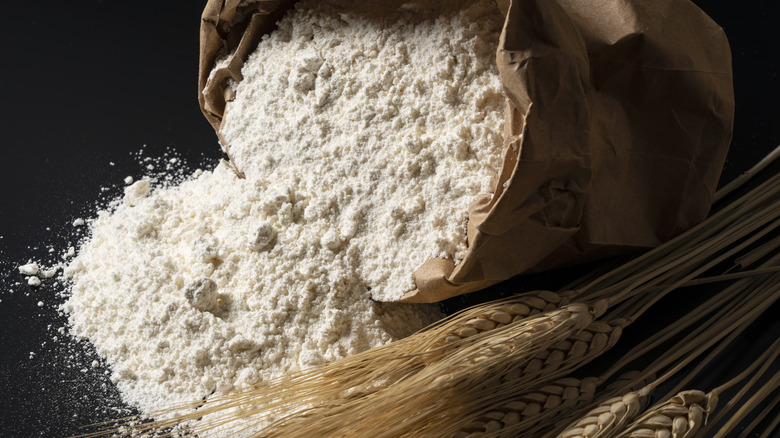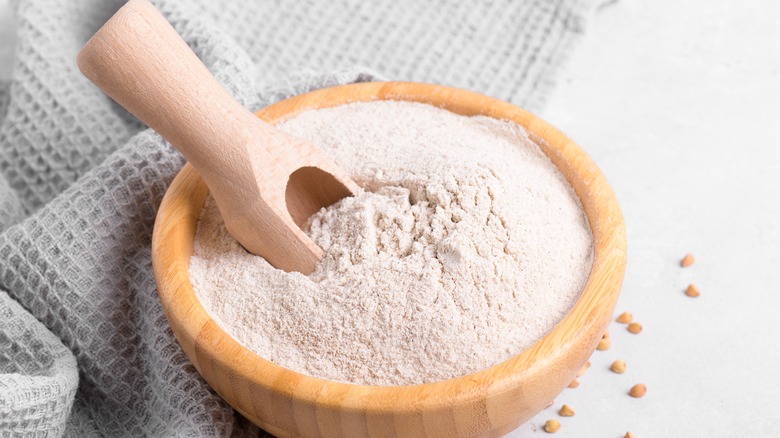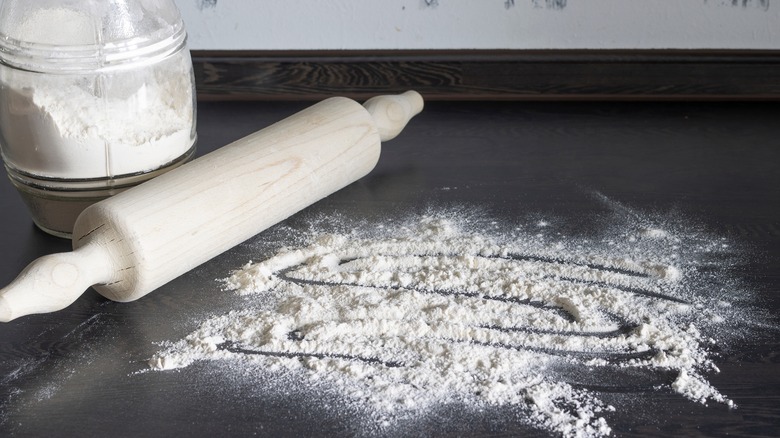How To Freeze Flour For Maximum Shelf Life (And Better Baked Goods)
If you like to buy in bulk, you know what every bulk buyer knows — you need to get used to freezing your food. Freezing food is a great way to preserve it and extend the shelf life of products you might not be able to consume right away. Freezing slows down the natural spoiling process of food, so it helps you avoid food waste. It can also help to preserve the nutritional value of certain foods, such as fruits and vegetables, according to Healthline, which can degrade over time when these foods are left at room temperature. Freezing food is also a great way to reduce the risk of foodborne illness as it slows the growth of harmful bacteria in food, and makes it safer to consume.
You can freeze almost any food, too. Produce, meat, bread, and even dairy products can be frozen. And yes, you can freeze flour, too. In fact, if you buy your flour in bulk, you probably should freeze it. Here's why.
The ins and outs of freezing flour
Freezing flour is a great way to extend its shelf life and prevent it from going bad, just like with any other food. When flour is stored in a cool, dry place, it can last for up to eight months. However, freezing flour can help it last even longer — for up to two years or more. If you have a lot of flour, this is a great way to extend its shelf life so that it won't go bad before you can use it. Freezing flour is especially great for those who live in a humid environment because it can help prevent spoilage and clumps, and it helps the flour maintain freshness.
There are some situations where you may not want to freeze flour, though. If you know you'll be using up your flour within a few weeks or a couple of months, there's be no need to freeze it. In this case, storing it in an airtight container at room temperature is sufficient. Also, freezing certain types of flour can affect its texture, so if you're baking something that requires a very specific texture, such as delicate pastries or cakes, freezing the flour may not be the best idea.
How to use frozen flour
Do not freeze the flour in its original packaging unless you wrap it in some type of plastic wrap to keep moisture out. Moisture will cause it to clump and spoil. It's best to place the flour in an airtight container or freezer bag and make sure to remove any excess air to prevent freezer burn, and then you can store it in the freezer. When you are ready to use the flour, simply remove it from the freezer and let it thaw at room temperature for a few hours before using it.
Of course, using frozen flour depends on what you are making. If your recipe calls for room-temperature flour, then thaw it. If your recipe needs chilled ingredients, then using flour straight from the freezer might be best. Keep in mind that freezing certain types of flour may affect its texture, so it's best to use frozen flour for baking breads, cookies, and cakes rather than for recipes that require a specific texture or consistency, such as a delicate pie crust.


